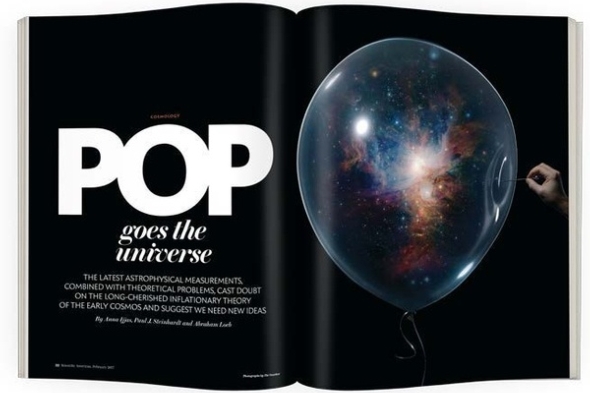From ScienceDaily:
Paper. (paywall) PhD student Qingdi Wang has tackled this question in a new study that tries to resolve a major incompatibility issue between two of the most successful theories that explain how our universe works: quantum mechanics and Einstein’s theory of general relativity.
The study suggests that if we zoomed in-way in-on the universe, we would realize it’s made up of constantly fluctuating space and time.
“Space-time is not as static as it appears, it’s constantly moving,” said Wang.
…
Unlike other scientists who have tried to modify the theories of quantum mechanics or general relativity to resolve the issue, Wang and his colleagues Unruh and Zhen Zhu, also a UBC PhD student, suggest a different approach. They take the large density of vacuum energy predicted by quantum mechanics seriously and find that there is important information about vacuum energy that was missing in previous calculations.
Their calculations provide a completely different physical picture of the universe. In this new picture, the space we live in is fluctuating wildly. At each point, it oscillates between expansion and contraction. As it swings back and forth, the two almost cancel each other but a very small net effect drives the universe to expand slowly at an accelerating rate. – Qingdi Wang, Zhen Zhu, William G. Unruh. How the huge energy of quantum vacuum gravitates to drive the slow accelerating expansion of the Universe. Physical Review D, 2017; 95 (10) DOI: 10.1103/PhysRevD.95.103504 More.
 But is everyone agreed that the universe is expanding at an accelerating rate? A Rob Sheldon noted the other day,
But is everyone agreed that the universe is expanding at an accelerating rate? A Rob Sheldon noted the other day,
It would seem that these critics, for all different reasons, have abandoned “inflationary cosmology”, finding the results of recent theory to be very disquieting. Ijjas doesn’t explain her antipathy, which may simply arise from working for Steinhardt, but is no doubt motivated by her thesis in the philosophical implications of QM. Loeb is not shy about proposing outlandish hypotheses, so his dislike of inflation likely comes from his Jewish upbringing and belief in a rational universe. But it is Steinhardt who is the most puzzling of the dissidents.
Not only did Steinhardt start the theory that he later abandoned, but he has also championed equally questionable theories of dark energy, “eternal inflation,” an eternally “bouncing big bang,” and “self-interacting dark matter” (e.g. dark sector). From this, one would have thought that Steinhardt is not the least bit shy of changing the laws of physics to accommodate observations. Why then does he suddenly criticize his colleagues for holding to an “unfalsifiable” theory?
It’s a mess but nobody dies.
See also: Rob Sheldon: Inflation and its critics
Follow UD News at Twitter!